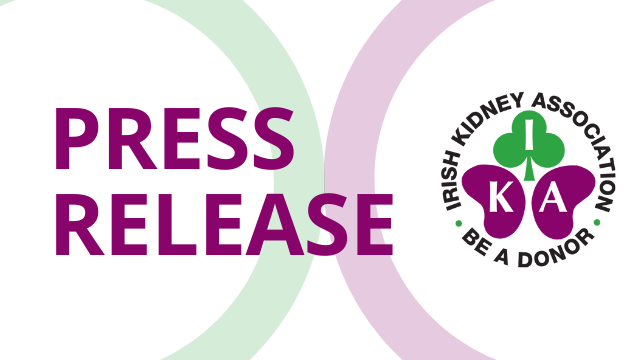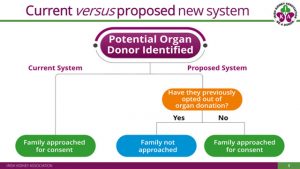Dialysis treatment is a part-time life support system which cannot be avoided when people have end stage kidney failure.
As a consequence of the spiralling energy costs we are hearing of families having to make hard choices in relation to what sacrifices can be made in meeting their daily needs. A person on home dialysis cannot choose to reduce the number of hours per treatment or reduce the number of treatments per week. They cannot choose to reduce the heating in their house as one of the side-effects of dialysis is difficulty in keeping warm.
The spiralling energy costs have shone a light on a pre-existing issue for people on home dialysis. Currently, people on home dialysis can claim some of their costs back against tax paid. This is done annually. A reimbursement after 12 months of paying increased energy costs is not viable if you cannot afford the monthly costs upfront. Equally, the reimbursement plan only works if there is a taxpayer in the household. Bringing it back to basics, there has been no talk of increasing the amount available in response to the energy price hikes.
Thinking long term and thinking laterally, the installation of solar powered systems with battery storage for electricity supply is not affordable for most dialysis patients as current SEAI grants only cover part of the expense involved.
Having people dialyse at home brings significant savings to the HSE compared to having to provide dialysis in a hospital or dialysis unit. To encourage growth in the provision and support of dialysis in the home, it makes sense that there should be financial support to alleviate the extra burden of electricity to run a dialysis machine and related charges like heating costs, additional refuse collection charges and laundry.
Recent reports of electricity supply outages causes unnecessary stress for people who are dependent on electricity for their life support systems.
There are two types of dialysis:
Haemodialysis: (2080 patients in total as of 31 Dec 2021)
Hospital/Centre Based: 2026 patients (as of 31 Dec 2021) 3 days per week 3-4 hours per session
Home based: 54 patients (as of 31 Dec 2021) Minimum of 3 days per week 3-4 hours per session (can be done overnight also)
Peritoneal Dialysis: (256 patients in total as of 31 Dec 2021)
Overnight Automated (8-12 hours 7 nights per week)
Manual Exchanges 4 times per day (no electricity required)
Source: National Renal Office End of Year Statistics 2021 (hse.ie)
The Irish Kidney Association is calling for
- A promotional campaign by electricity providers to encourage people reliant on electricity as a life support system to register as vulnerable customers.
- The provision of 100% grants for renewable energy systems for the homes of patients with complex medical needs who are reliant on electricity.
- Clear procedures to be followed and communicated by dialysis units to patients in advance of power outages.




